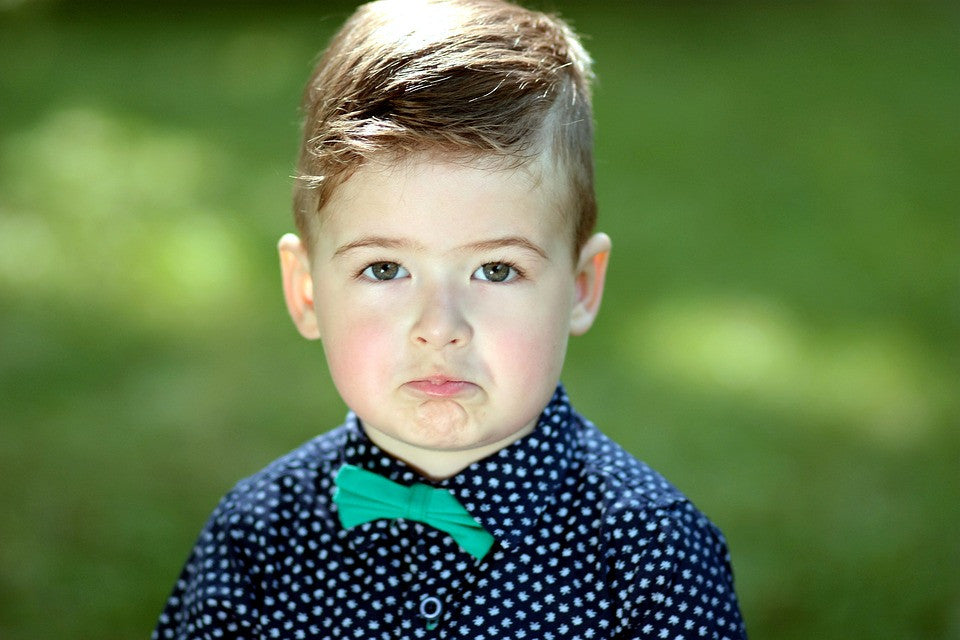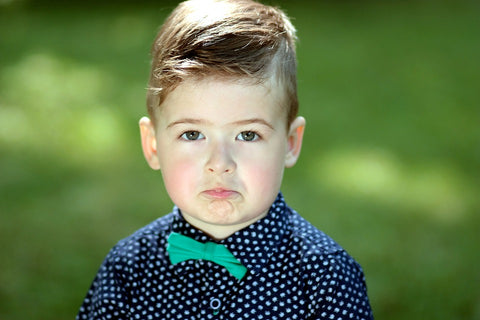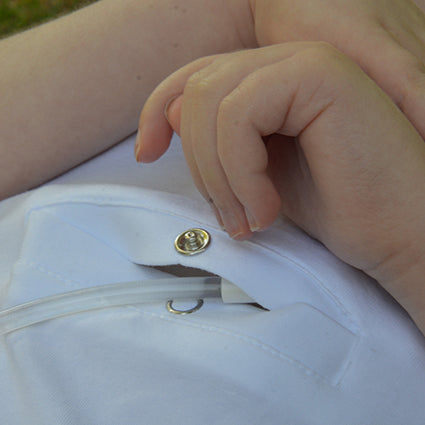
Have you had to cope with a child who is in chronic pain?
Susanne shares with us what daily life is like when your child is in chronic pain and can’t tell you why. During the past 4 years Susanne has had no more than 3 hours sleep at any one time and can’t remember what life feels like without sleep deprivation. “I’ll let you know once I’m over it”, she says.

James’s Early Days
When Susanne was 20 weeks pregnant and having her usual scan, the doctors informed her that her unborn son’s kidneys were dilated and they were unsure why. “Lots of conditions can cause this”, she was told. From day one, James cried every time he urinated. “It was relentless, his crying went on for hours” Susanne recounts. The Urology department spent the first 18 months of James’s life investigating his bladder and then put him on medication to stretch his bladder. Susanne’s was at a complete loss when it came to her son’s pain. The crying never stopped.
James grew and became more mobile, though was still unable to articulate his pain, he would bang his head or bounce off the floor as soon as he was able to sit upright. He seemed to try anything in an attempt to counteract the pain. His apparently irrational behaviour confused and worried his parents. They had no idea how to help him and wondered if James was exhibiting any known developmental problems. The clue to a deeper understanding was that the behaviour was repeated every time he urinated. His constant screaming and suffering was impacting the rest of the family, limited family outings and often kept them housebound.
Susanne tried everything to help her baby pass water but it was nearly impossible as he was in continuous pain. She tried increasing his fluid intake. She tried over the counter painkillers to numb the pain. There were no other options for this sort of spasm, “Paracetamol has little or no effect on James’s muscular and spasmodic pain” Susanne recalls.
By the time James was 2 years old, their only choice was to catheterise. They used a flip/flow valve, to control how much and when he urinated. Finally, James was no longer in pain every day of his life. He didn’t need to carry a urine bag all the time, but it still had to be drained every 3 hours. Life was now easier for everyone, though it wasn’t plain sailing. Catheters get blocked with sediment in the tube. Susanne had to use water and diluted acid to break the sediment down, and help the flow from the bladder. At night James would wear a urine bag attached to a catheter to allow it to free drain. This was attached to a stand, which meant that any movement in the middle of the night meant Susanne would have to get up and check that the tube wasn’t kinked or worse, had ended up around James’s neck. It is because of this constant worry, or the slightest sound from James, that Susanne never gets more than 3 hours of sleep at a time.
Fast forward a year and half later and Susanne tried to potty train James even though he had a catheter. In doing so, it was important for James to recognise his bladder was full by isolating the right muscle and then learning to empty his bladder – even though he struggled, he eventually got it! Today he uses a wobble watch that goes off every 2 hours so that James associates it with emptying his bladder. The doctors were so pleased with his progress that they thought it was time to remove the catheter and now at age 4 – and much to his mother’s relief – James is catheter free and relies wholly on the wobble watch. However, nights are still a struggle. If he doesn’t empty his bladder and it fills up past the point of no control, his bladder goes into spasm.
Susanne works closely with James’s school, in particular with his key worker, to ensure his training is maintained. She is happy with how he is looked after, yet realises that it is very easy to assume that, just because he has not got a catheter anymore, his routine is sorted. Things are getting better, though a watchful eye is still required.
Struggle with schools
From the time James was ready to go to school, Susanne has struggled. It was suggested to her that he should go to a special needs school but Susanne did not understand the reason why. As far as she was concerned “it was just a tube”. She added that “It’s not controlling other organs, it’s not life threatening, it’s not dangerous and if used correctly, it’s not disgusting”. Susanne goes on to explain that “it is nothing to be ashamed of and certainly wasn’t a good enough reason not to be able to attend a mainstream school”. Her battle with the school system took the better part of one year before she won the right to place him in a school that could meet his needs.
James is one of a very few - if not the only child - in the UK attending a mainstream school with a supra pubic catheter. Susanne shares her story with other parents, so they can benefit from her experience and daily struggles “With a little effort from both the parents and the school it is possible for kids like James to attend a mainstream school”. In order for the school to accept him, some provisions were made such as sterilizing hands and equipment before changing him.
Susanne also wanted the right key worker for James. It was important for her that the key worker would be willing to help with the catheter and the draining of the urine bag and wouldn’t get upset by emptying it or feel awkward to meet his needs. That they were comfortable with being firm with him, and although difficult to hear him in pain, they would need to be able to cope with James’s pain and stress. In essence, they needed to have the same approach James’s parents had at home.
What has SpecialKids.Company clothing changed for James?
One night James was in so much pain and anger, he ripped out his catheter and was bleeding from the opening. Susanne could do nothing but hold and console him. In frustration she turned to Facebook to vent with other mothers in the same situation. Whilst doing so she came across an advert for one of our – SpecialKids.Company – vests, showing the special tube access. This immediately grabbed her attention.
James’s dressing routine was intense when he was wearing the nappy and urine bag. First on went the nappy, then the boxer shorts that went up to his underarms, then a vest top, followed by a t-shirt, and finally the trousers. The routine was the same in summer and winter in order to keep everything tucked in during the day. James’s movement was severely hampered and nighttime changing every 3 hours (sometimes hourly) was a nightmare. Susanne tells us that other parents have to pad the incision site and use bum bags to hold the urine bag in place.
When Susanne tried on our SpecialKids.Company vests, the change she saw in James was immediate. The bag was supported in his nappy and they had access to it anytime through the garment opening. James instantly noticed his own improved freedom of movement and that the catching of his tube had stopped. In the past, no matter how many layers James had on or how well the tube was taped down, it still popped out. This problem has now been completely eliminated.
The risk of infection has now been reduced and James can also play with other children at school. The urine bag is so well hidden that children never notice it or are curious and tamper with it.
As the mother of a child with special needs, Susanne has several suggestions for future versions of our garments, which include adding a pocket, so as James gets older he can run around more. We continue to work with Susanne, other parents in similar situations, and also health providers to implement further improvements, which will help to change the lives of so many families.

Medical Support for parents like Susanne
Susanne’s experience has taught her a lot. She has found that hospitals are great in emergency situations, though they often struggle with the day-to-day maintenance of a child with a supra pubic catheter, such as flushing the catheter and dressing the wound.
Today James is a little boy still learning how to deal with his condition though being catheter free he is now able to rough and tumble with his older brother and getting ready for big school next year.
We are so pleased that, through Susanne’s purchase of our SpecialKids.Company garments, we have come to understand more of the needs of children like James. We wish James every success in growing up to be a healthy young man and, hopefully, never wearing a catheter again.
The Future
When asked how things could be improved for other parents, Susanne’s thoughts are, “when your child is using a catheter for the first time, you are given 3 spare urine bags, a catheter and a night stand. Why aren’t you given a tube access vest as part of the care package? It would make life so much easier for everyone, from day one”.
Susanne’s Advice to Parents
When asked what 4 tips she would like to share with parents who have a child fitted with a supra pubic catheter Susanne suggests:
- Make sure you do your research about the procedure and what’s involved
- Talk to other parents about their experience with day to day maintenance
- Always take twice as much with you on days out because the catheter will leak
When buying new clothes look at where it sits on your child, as most clothing is not suitable for a supra pubic catheter.... Susanne has lost count of how many times she has had to return items of clothing for exactly this reason.

